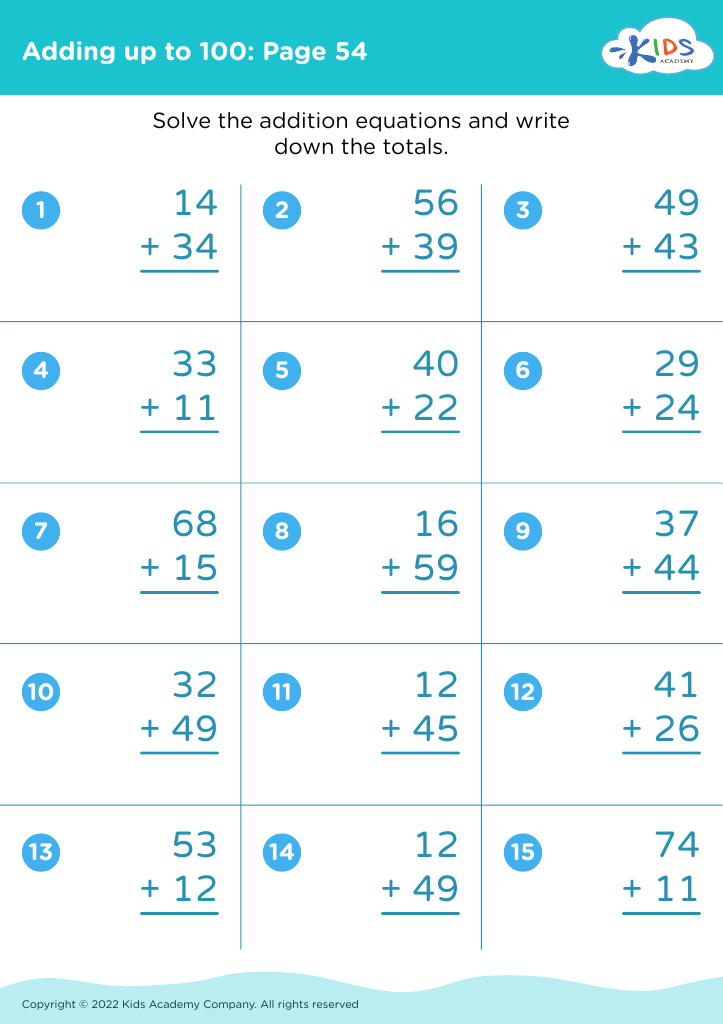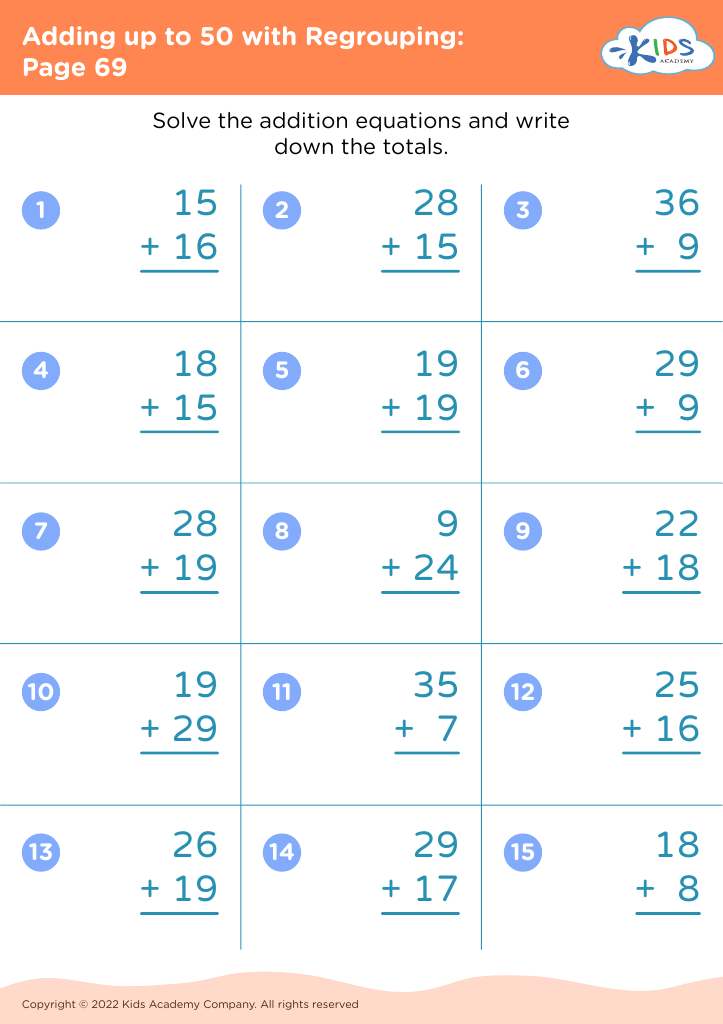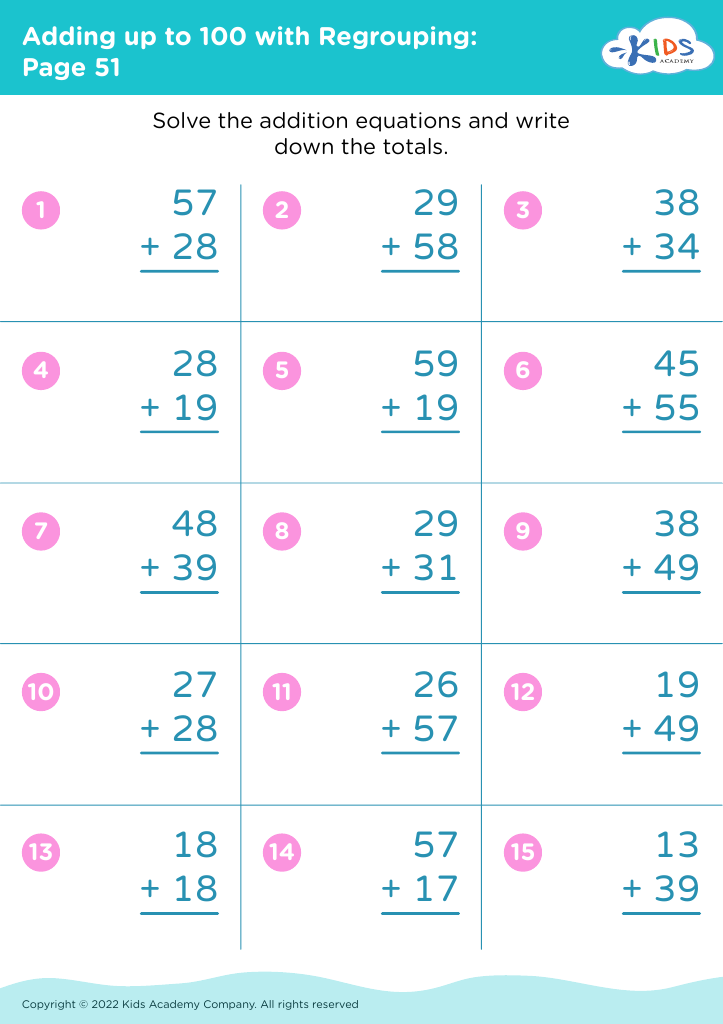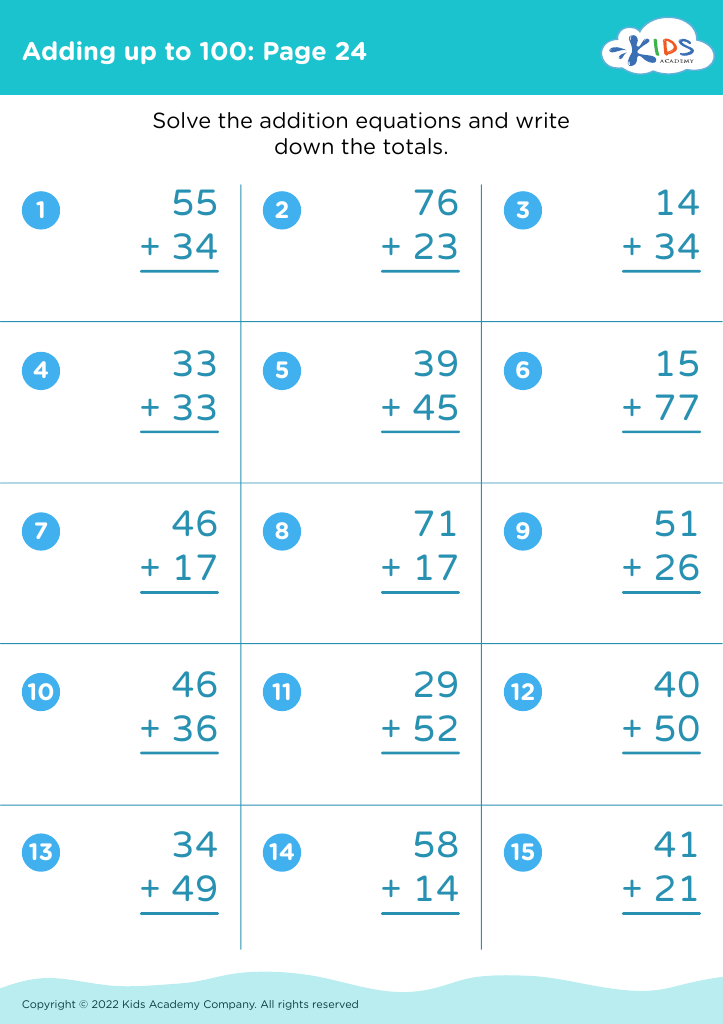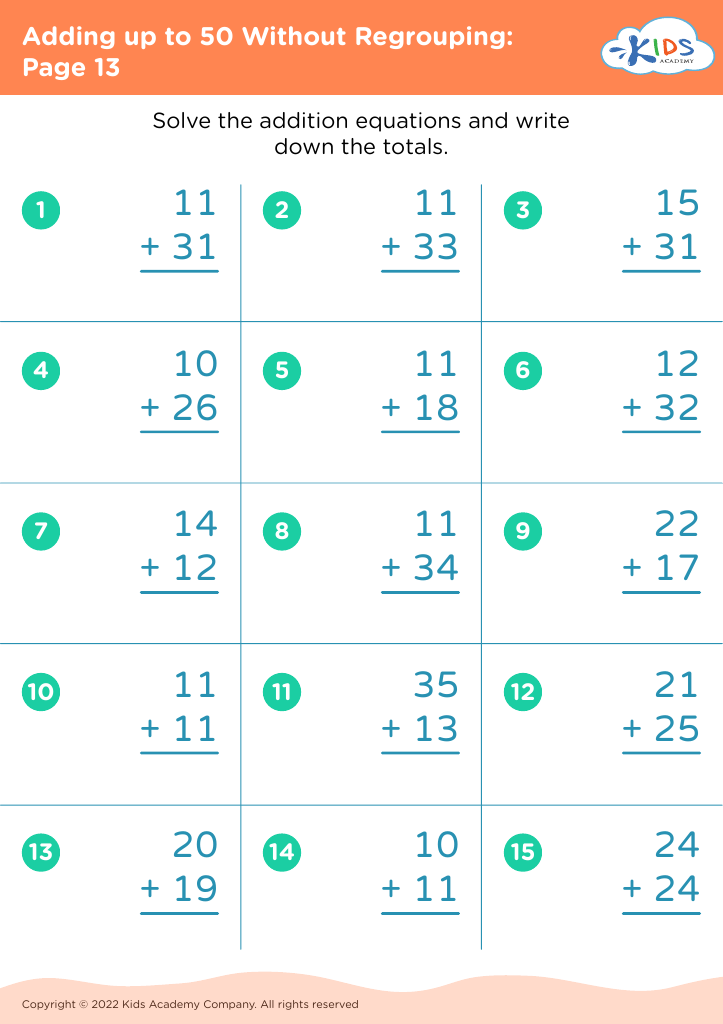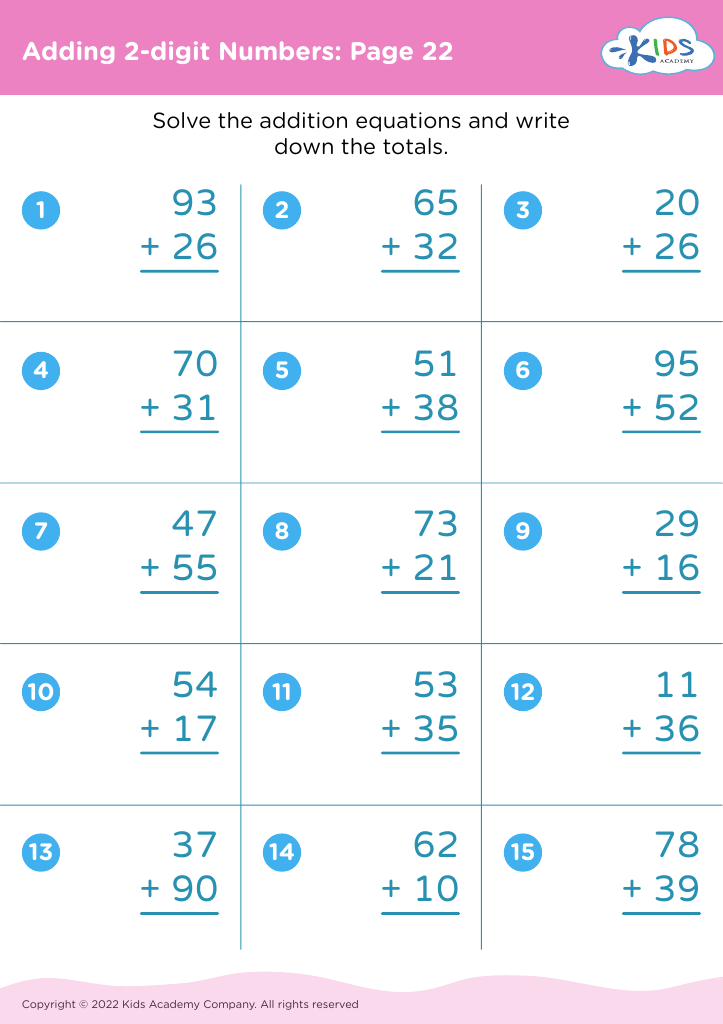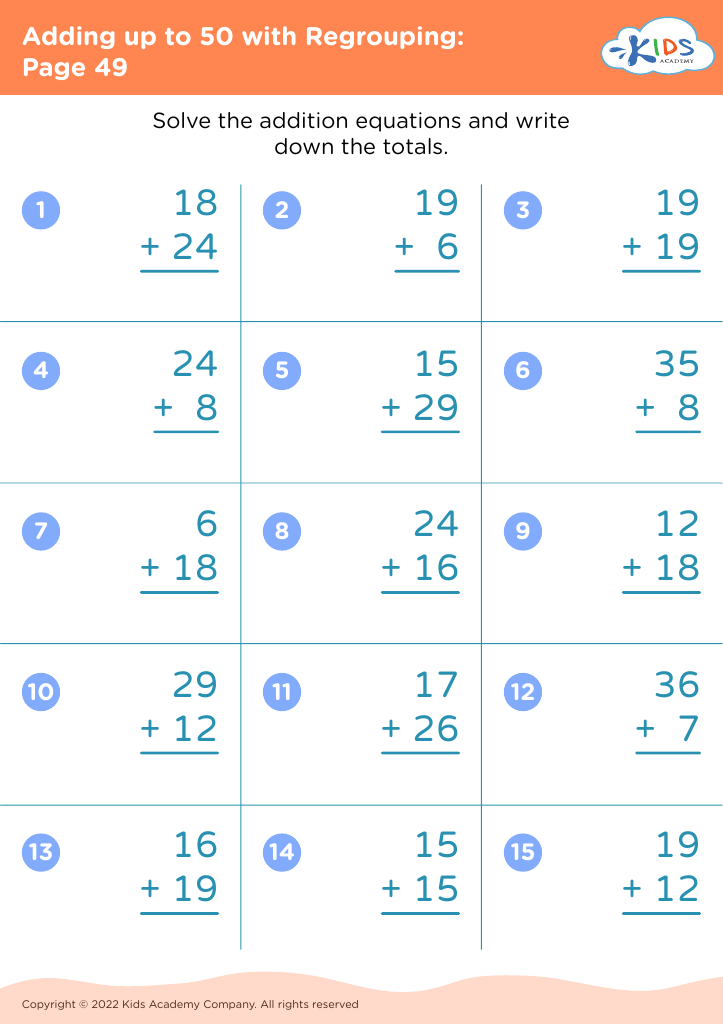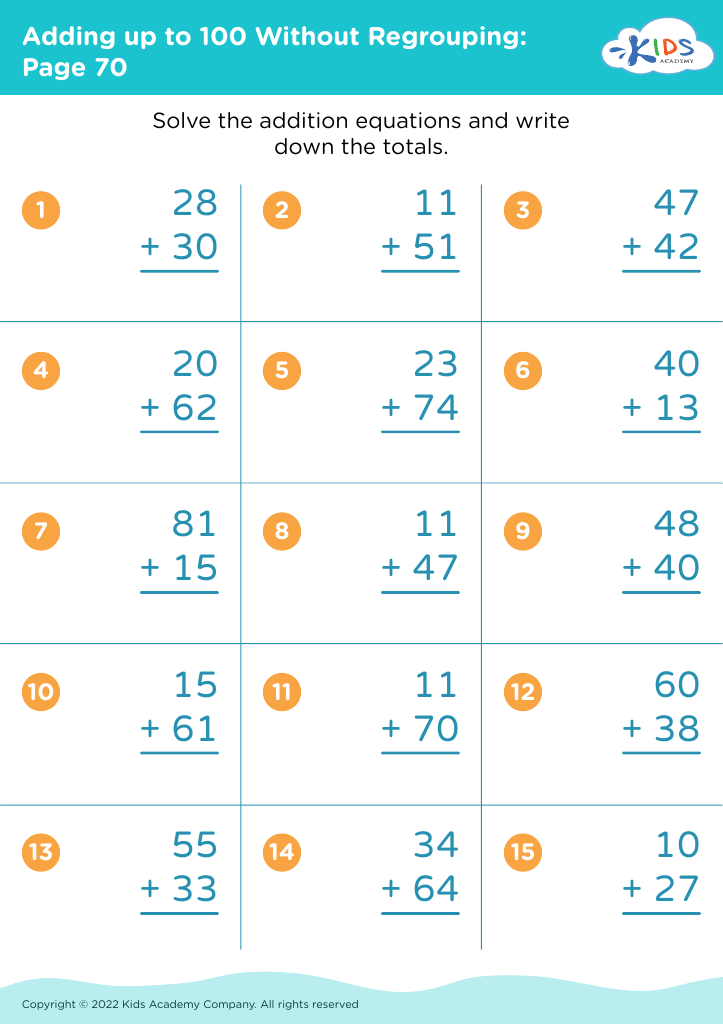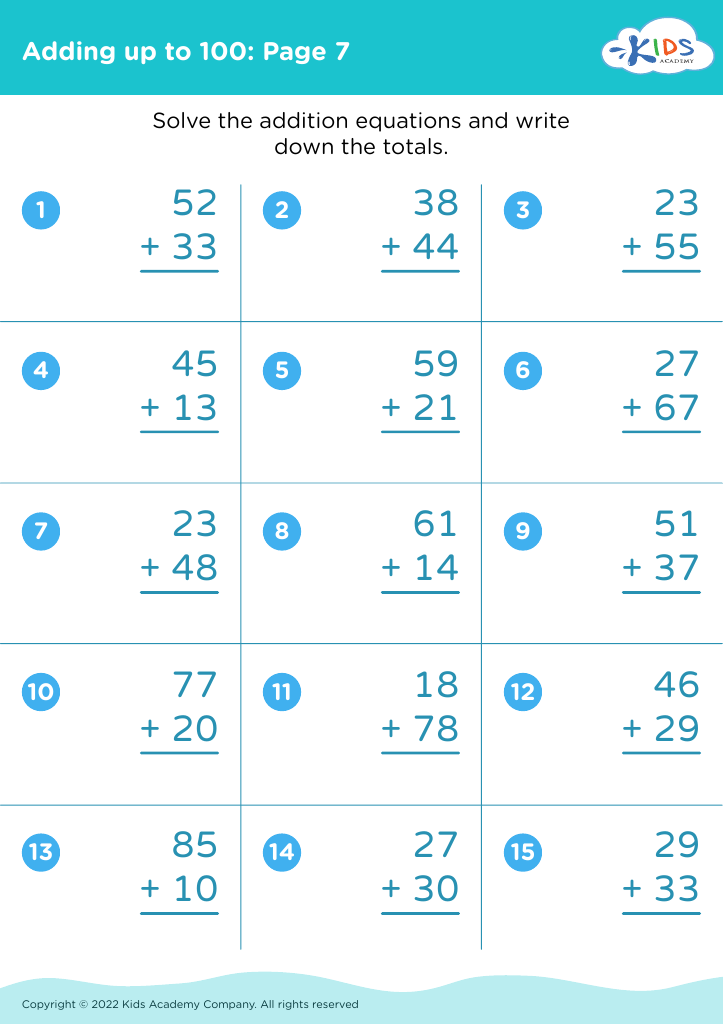Improve number recognition Addition & Subtraction Worksheets for Ages 4-7
15 filtered results
-
From - To
Boost your child's number recognition and arithmetic skills with our engaging Addition & Subtraction Worksheets, designed for ages 4-7. At Kids Academy, we offer diverse, interactive printable worksheets that seamlessly blend fun illustrations with essential math concepts. These worksheets are crafted to enhance number recognition, and build a strong foundation in addition and subtraction, laying the groundwork for future math success. With vibrant activities and exercises tailored for young minds, your child will enjoy mastering numbers while developing critical thinking and problem-solving skills. Start today to make math learning enjoyable and impactful for your little one!
Parents and teachers should prioritize improving number recognition, addition, and subtraction skills in children aged 4-7 because these foundational math concepts are crucial for their intellectual development and future academic success. During these formative years, children’s brains are rapidly developing, making it the perfect time to establish a strong numerical foundation.
Number recognition is essential because it enables children to understand and identify numerals, which is the first step towards recognizing patterns and relationships between numbers. It is a skill that supports their daily interactions with their environment and is fundamental for more complex mathematical concepts.
Addition and subtraction constitute the basic operations of arithmetic. Mastery of these skills enhances problem-solving capabilities and logical thinking. As children learn to add and subtract, they develop an understanding of quantities and the concept of 'more' and 'less,' which are critical for their cognitive development.
Additionally, proficiency in these early math skills boosts children's confidence and positively influences their attitude toward learning. It provides them with the tools they need to handle more advanced math with ease and prepares them for standardized tests and academic challenges ahead. Therefore, focusing on these key areas lays a strong educational foundation, contributing significantly to a child’s overall development and success in future learning endeavors.


